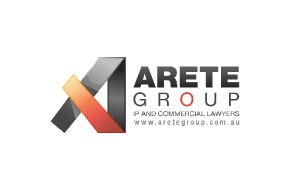
When selecting a new business name or brand, it is tempting to select words that describe your goods or services. The benefit of course is that when consumers see your brand, they will know what you do. The use of online search terms makes a brand that describes your goods or services all the more tempting.
The problem for descriptive [or even laudatory terms which suggest the benefits of goods / services] includes:
1. It is unlikely to satisfy the tests required to register that name / brand as a trade mark. Therefore you are unable to obtain proprietary [ownership] or monopoly [exclusive] rights to the name / phrase / brand. That is because under section 41 of the Trade Marks Act 1995 (Cth) (the Act), to be registrable, a mark must be sufficiently adapted to distinguish. Put simply, to be registrable, a brand can’t be descriptive of your goods / services.
2. If you happen to obtain registration of a descriptive brand, you are likely to encounter difficulties enforcing your rights against third parties. This is because for there to be infringement under section 120 of the Act, you must establish that the infringer used the words or brand “as a trade mark” rather than use purely in a descriptive manner.
3. Further, the more descriptive your trade mark, the more often you are likely to find other traders using terms you think infringe your rights. This may result in spending a lot of time and effort “putting out spot fires”. A recent case before the Trade Marks Office [and now before the Federal Court], is in relation to rights in the descriptive brand “Sydney Business School”.
The University of Wollongong (UoW) started using the name “Sydney Business School” in 1999 in relation to its faculty of commerce. UoW attempted to register this name as a trade mark in 2012. The University of Sydney (UoS) took exception to this attempt to gain a monopoly over the name, as it had rebranded its own faculty of economics and business to the “University of Sydney Business School” in 2013.
The parties are now in dispute over who should have rights to use, and prevent others from using the Sydney Business School name.
This case highlights the differences between descriptive and distinctive brand. Distinctive brands are easier to register. It is also easier to enforce rights in a distinctive brand.
At ARETE Group, our team includes specialist intellectual property lawyers who are experienced in proactive identification of potential issues relating to registrability and use of trade marks.
For further information visit our website at www.aretegroup.com.au or email [email protected] for an obligation free assessment of your legal or trade mark issues.

Contact us on 02 6162 1639 or
[email protected] for a no
obligation and free of charge initial discussion
about your possible legal requirements.

